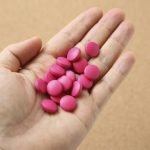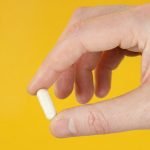These common prescribed drugs may strongly increase stroke risk
In a recent study published in The International Journal of Epidemiology, researchers found that drugs routinely prescribed for allergies, heart disease and Parkinson’s are linked...
Depression and anxiety very common in people with this heart problem
In a new study from the Cardiological Group Practice in Germany, researchers found that nearly one in four patients with heart failure is depressed...
This daily supplement may reduce respiratory symptoms in older people
In a new study from Imperial College London, researchers found that daily probiotic use was linked to fewer upper respiratory symptoms in overweight and...
Scientists find a more effective at-home treatment for common bowel diseases
In a new study from the University of Pennsylvania, researchers found a more effective at-home treatment for common gut diseases.
Irritable bowel syndrome (IBS) affects...
Delaying second Pfizer vaccine strongly increases antibody responses in older people
In a new study from the University of Birmingham, researchers found that antibody response in older people is three-and-a-half times greater in those who...
A healthier heart linked to better cognitive functions
In a new study from the Queen Mary University of London, researchers found that people with healthier heart structure and function appear to have...
7 facts women should know to prevent and recognize stroke
It's telling that although stroke is the third leading cause of death for women in the U.S., and that twice as many women die...
Your eyes can show early warning for Alzheimer’s disease, study confirms
In a recent study from the Johns Hopkins Wilmer Eye Institute, researchers found how an imaging technique that measures blood flow in the back...
Eating this food regularly can protect against recurrent heart disease
In a recent study from McMaster University, researchers found that eating oily fish regularly can help prevent heart disease in high-risk people, such as...
This obesity drug can effectively suppress appetite, food cravings
In a new study from Novo Nordisk A/S, Søborg, Denmark, researchers found that the obesity drug semaglutide reduces appetite, food cravings and energy intake...










